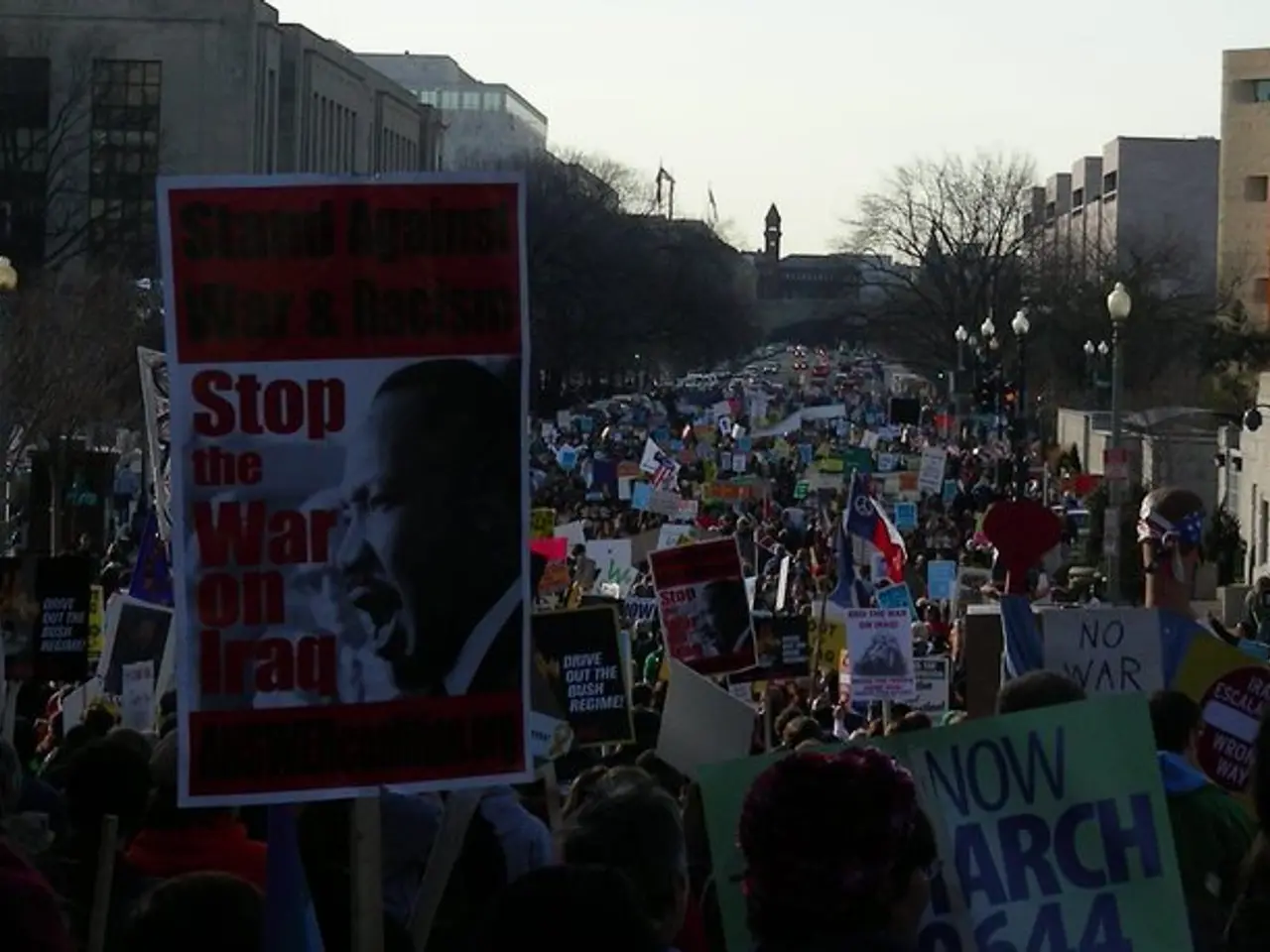Unrest in anti-administration demonstrations in Serbia manifesting as violent confrontations
The political landscape in Serbia is currently fraught with tension, as widespread protests against President Aleksandar Vucic have escalated into violent confrontations between protesters and ruling party supporters.
For nearly nine months, anti-corruption demonstrations have been ongoing, initially peaceful but increasingly confrontational due to provocations by pro-government groups. On August 12, 2025, in cities like Vrbas and Bačka Palanka, pro-government supporters violently attacked protesters with stones, frozen bottles, and fireworks, while police largely stood by without intervening. This sparked further outrage and intensified protests and clashes across Serbia, including in Belgrade.
The unrest can be partially traced back to a disaster on November 1, 2024, when a 300-ton concrete canopy collapsed at Novi Sad’s railway station, killing 16 people. This incident, seen as emblematic of governmental negligence, fueled public anger and protests.
President Vucic has described the protesters as "thugs and murderers," and threatened to "clean up" Belgrade and Novi Sad from protesters, warning that this action would prevent a "civil war." He has also vowed to "clean up" the cities from the protesters and thanked his supporters for backing him against government opponents.
The latest protests were fueled by supporters of Vucic's SNS party attacking government-critical demonstrators in the northern Serbian villages of Vrbas and Bačka Palanka the day before, without police intervention. Demonstrators are demanding the resignation of President Vucic and new elections, criticizing his government as corrupt and authoritarian.
In the recent clashes, scuffles have occurred between protesters for and against Vucic in numerous larger and smaller cities. In Novi Sad, 64 civilians and five military police officers were injured in the clashes. The police used tear gas in Belgrade and Novi Sad.
Independent experts and opposition figures blame negligence and corruption under the Vucic government for the train station tragedy. They argue that the government's hardline stance and limited police intervention during initial attacks on demonstrators have only served to escalate the situation further.
As the situation remains volatile, it is crucial for all parties involved to exercise restraint and work towards a peaceful resolution. The people of Serbia deserve a government that listens to their concerns and works to address the issues that matter most to them.
[1] BBC News. (2025, August 13). Serbia: Protests turn violent amid calls for Vucic's resignation. Retrieved from https://www.bbc.com/news/world-europe-58146901
[2] Reuters. (2025, August 13). Serbian police use tear gas, armored vehicles against protesters. Retrieved from https://www.reuters.com/world/europe/serbian-police-use-tear-gas-armored-vehicles-against-protesters-2025-08-13/
1) "In the context of the current political turmoil in Serbia, the service provided by news organisations, covering general-news, crime-and-justice, and politics, remains crucial to keep the public informed about the escalating protests and the government's response."
2) "As the situation in Serbia continues to escalate, prompted by allegations of government negligence and corruption, it is essential for citizens and political leaders alike to engage in constructive discussions about the future of the country's political landscape, with a focus on improving service delivery and promoting justice."







